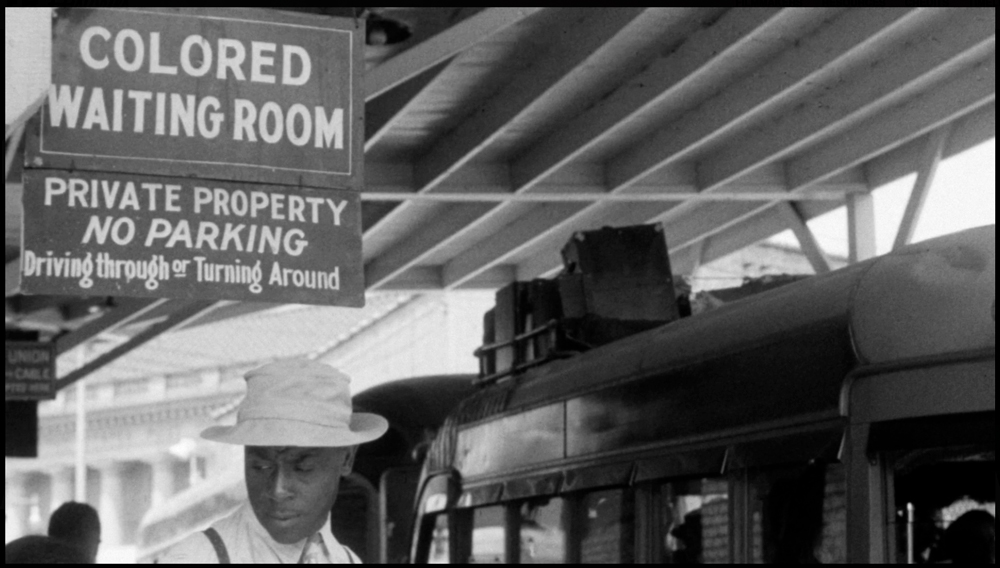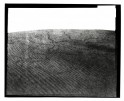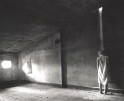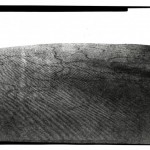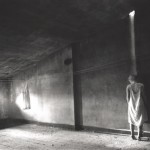Politics of the Kitchen: Counter Histories
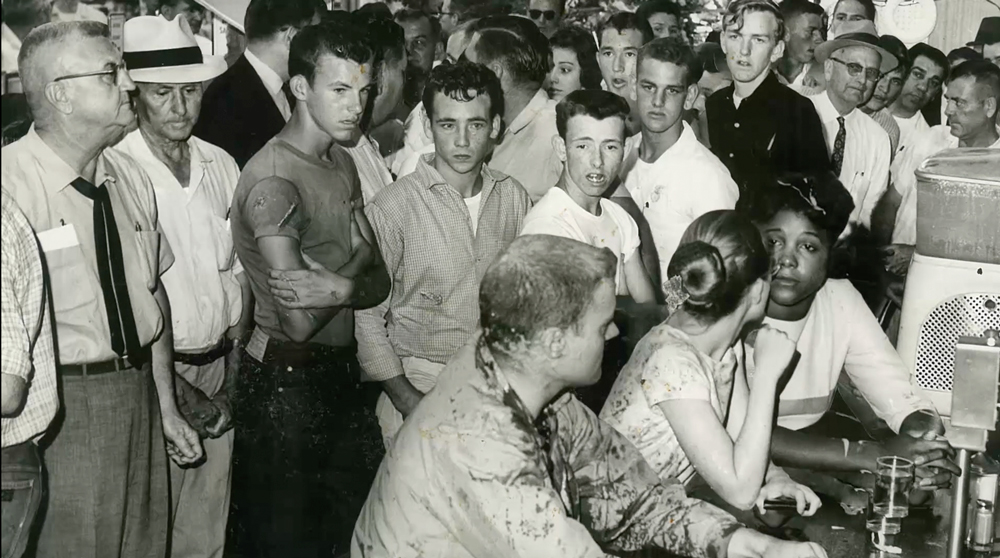
Jackson, Mississippi, May 1963. Students and faculty from Tougaloo College stage a sit-in at the Woolworth’s lunch counter. Counter Histories: Jackson Mississippi
By Barbara Ciurej and Lindsay Lochman
Counter Histories: Documenting the Struggle to Desegregate Southern Restaurants is a timely resource bringing together photojournalism, history and politics with food. Connecting desegregation protests and demonstrations of today and yesterday, Counter Histories provides viewers a context to consider the role of civil disobedience in the face of systemic racism and injustice.
A major expression of the Civil Rights Movement began in 1957 at segregated ice cream parlors, lunch counters and restaurants…and it was “concerned with something much bigger than a hamburger.” It was about the simple freedom to enter through the front door, sit down where you pleased and order food to eat on the premises.
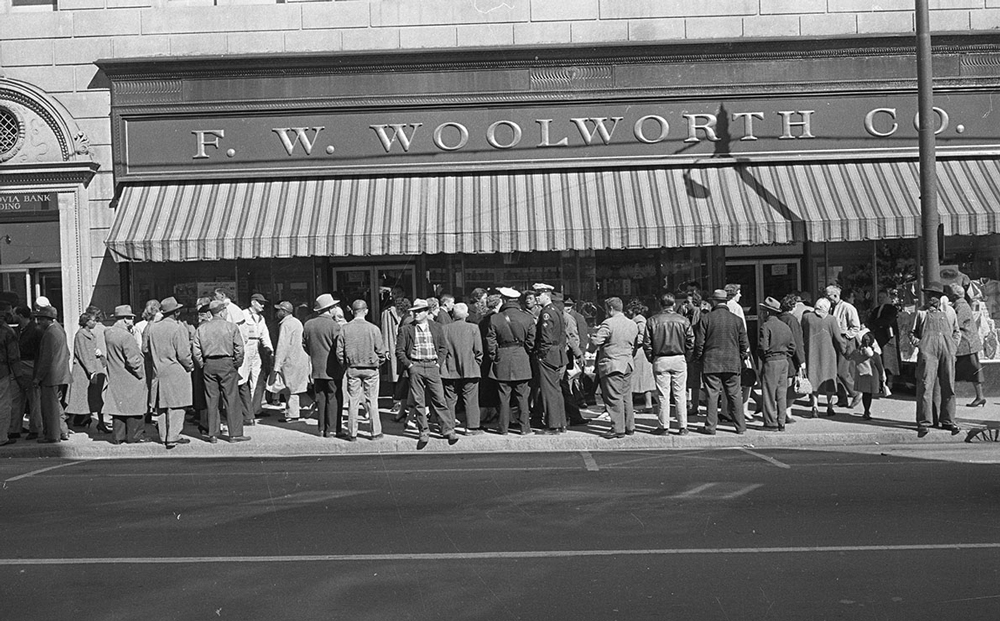
Durham, North Carolina, February 1960. Sit in by Civil Rights protesters in front of F. W. Woolworth Company. Wikimedia Commons
Five and dime stores like the ubiquitous Woolworth’s, were today’s equivalent of a dollar store with a food court. In southern states, while black citizens could buy merchandise, segregation laws banned them from the lunch counter and restrooms.
Food service was a symbolic starting point. The restaurant desegregation struggles of the 1950s and 1960s occurred in order to break through the indignities of unequal accommodations and service. Behind the protests was the struggle for basic human rights —for economic, political and social equality. Black citizens began to organize with boycotts, picket line protests and sit-ins at lunch counters. By 1960, 70,000 ‘foot soldiers,’ trained in specific protocols and strategies of non-violence, had participated in desegregation actions. In Rock Hill, SC, the attempt to sit at a lunch counter incurred brutality, arrest without bail, and a sentence of 30 days hard labor. Desperate to avoid more incidents, white civic leaders chose to close all the city’s lunch counters until 1964 when Civil Rights Act was signed into law.
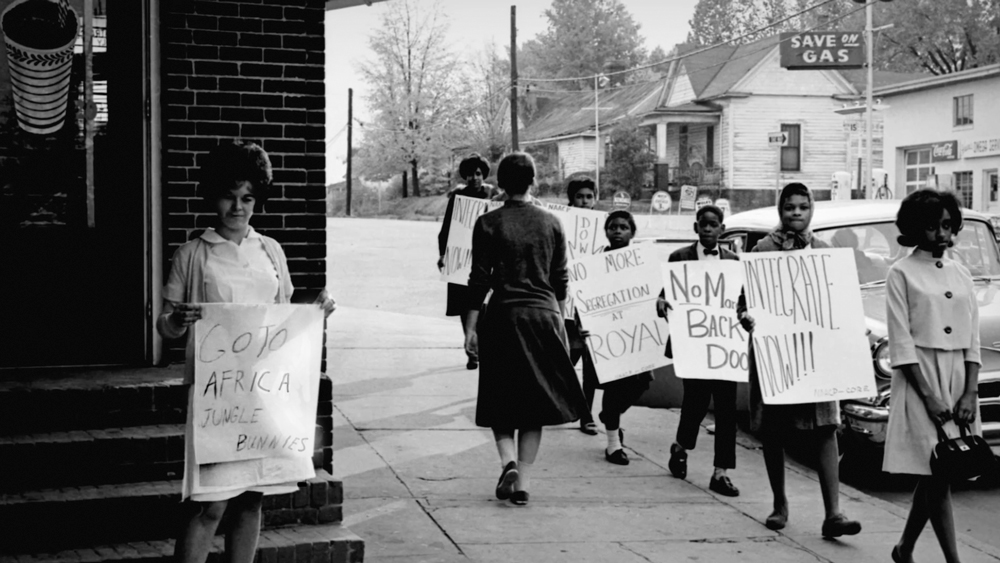
Durham, North Carolina, June 1957. Picketing for desegregation outside the Royal Ice Cream Parlor. Counter Histories: Durham
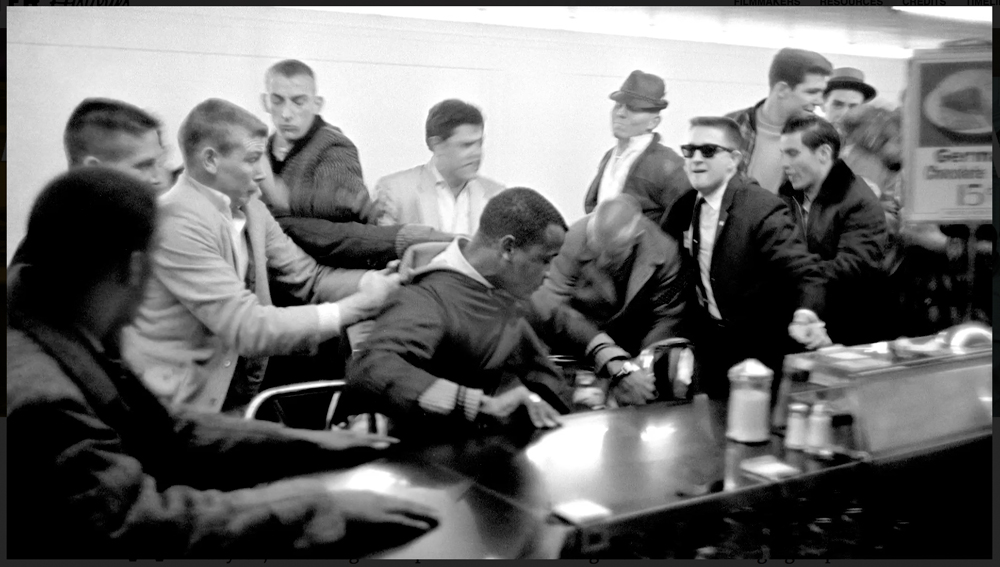
Nashville, Tennessee, March 1963. Scuffle at Moon-McGrath drugstore lunch counter sit in. Counter Histories: Nashville
These five, twenty-minute documentaries were created to mark the 50th anniversary of this landmark legislation under the auspices of the The Southern Foodways Alliance.
Together they provide a vivid accounting of the events of sixty years ago. A lot to digest in light of current events.
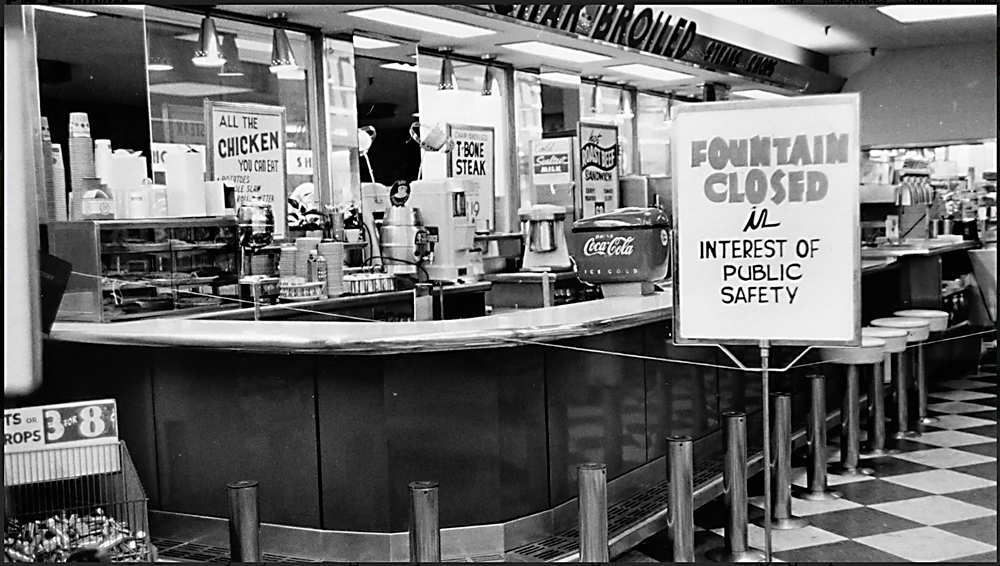
Nashville, Tennessee, March 1963. Aftermath, Moon-McGrath drugstore lunch counter sit in. Counter Histories: Nashville
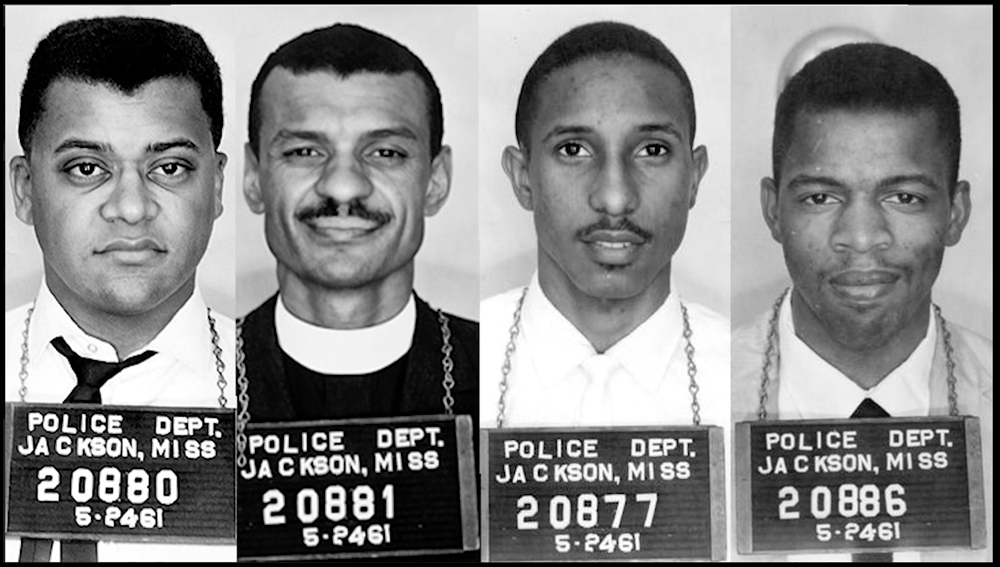
Nashville, Tennessee, March 1963. Prominent organizers of the downtown Moon-McGrath drugstore lunch counter sit in. Left to Right: Rev. James Lawson, activist and university professor; Rev. C. T. Vivian, author and leader of the Southern Christian Leadership Conference; Bernard Lawson, civil rights activist and organizer; U.S. Representative John Lewis, statesman and civil rights activist. Counter Histories: Nashville
Each local filmmaking team approaches their regional history in a different way. Photo journalistic narratives using archival footage, the voices of activists and supporters, as well as stylized re-enactments were employed. Each narrator speaks from their lived experience through the days of protest. These varied styles allow viewers to understand that change came through the momentum of cascading, intertwined individual actions in each city. Together, the varied voices and tactics of the desegregation organizers and protesters create a is singularity of purpose to transcend systemic racism and injustice.
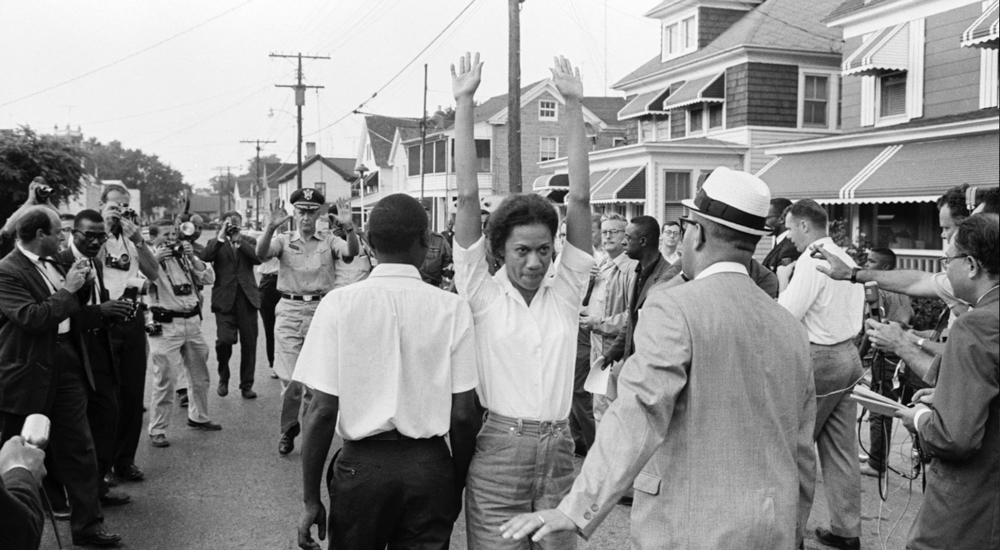
Cambridge, Maryland, July 1963. Civil rights leader, Gloria Richardson Dandrige marching before the Dizzyland Restaurant sit-in. Counter Histories: Cambridge, Maryland
“These films ask questions of black citizens. Would you have had the fortitude to join the protests? To lead the protests? These films compel white viewers to ask questions of themselves, too. Which side of the issue would you have been on? Would you have taken a seat alongside black protesters? Or would you have stirred the crowd by tossing epithets and brickbats? What’s more, these films ask questions of today’s youth, no matter their race or ethnicity. What stand will you take to defend our civil rights?”
John T Edge, Director, Southern Foodways Alliance December 22, 2014
website view: Counter Histories: Documenting the Struggle to Desegregate Southern Restaurants
The Southern Foodways Alliance documents, studies, and explores the diverse food cultures of the changing American South. Their work sets a welcome table where all may consider our history and our future in a spirit of respect and reconciliation. Based at the University of Mississippi’s Center for the Study of Southern Culture, they share oral histories, produce films and podcasts, publish great writing, sponsor scholarship, mentor students, and stage events that serve as progressive and inclusive catalysts for the greater South.
Barbara Ciurej and Lindsay Lochman are photographic collaborators. As an extension of their long-term examination of the domestic realm, their current work addresses climate change, consumption and connection through food.
Website: www.ciurejlochmanphoto.com
Instagram: @barbandlindsaycollaborate
Posts on Lenscratch may not be reproduced without the permission of the Lenscratch staff and the photographer.
Recommended
-
Photography Educator: Lindsay MetivierFebruary 21st, 2026
-
Jonathan Silbert: InsightsFebruary 19th, 2026
-
Olga Fried: Intangible EncountersFebruary 18th, 2026
-
Anne McDonald: Self-PortraitsFebruary 17th, 2026
-
Review Santa Fe: Leslee Broersma: Tracing AcademiaFebruary 11th, 2026

